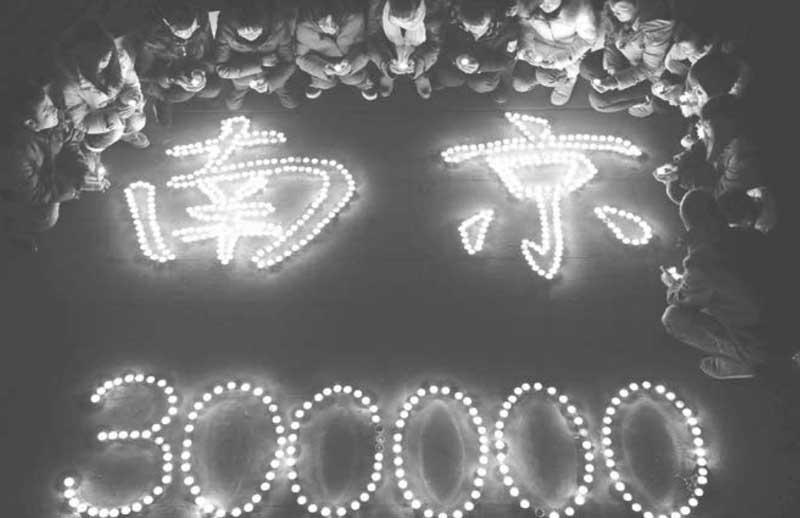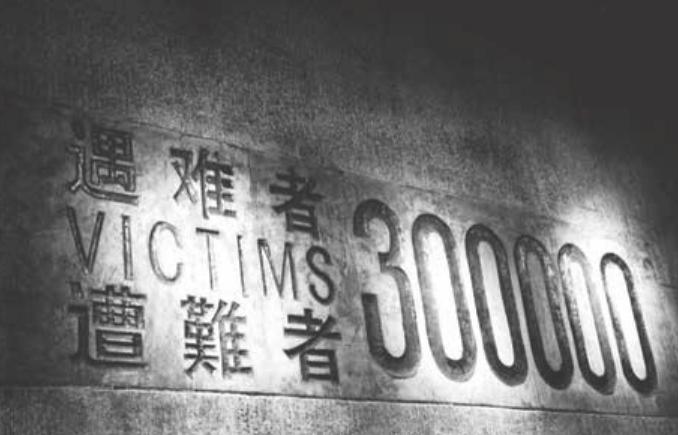Nanjing–79 years later
2016-08-17
As one of Chinas wealthiest, most populous cities, Nanjing today is a truly impressive city, with many claims to fame. It is beautiful and clean, with a vibrant culture and rich history that attracts millions of tourists from all over the world. It has been the capital of China twelve times under regional empires, revolutionary governments, puppet regimes and national governments. It has a geographic position that makes it Chinas transportation hub. However, it is also the site of a terrible human tragedy that occurred nearly eight decades ago – up until recently, the city was Nanking.
In 1937, the Japanese army succeeded in taking the city of Nanjing after a grueling battle with the Nationalist army. Having expected an easy victory over the disorganized, under equipped Nationalist army, the Japanese troops were furious over the heavy casualties they took. They turned their anger on the helpless civilians and POWs in Nanjing, with disastrous consequences. Over a period of six weeks, an estimated 200,000- 300,000 people were massacred, and 20,000 – 30,000 women were sexually assaulted.
None were spared from the wrath of the Japanese army– the young, the old, the pregnant, the innocent – they were all subject to indiscriminate beatings, shootings, rape and torture. A third of the city was set ablaze and destroyed, for no appreciable military gain. The only sanctuary in the city was the neutral Safety Zone set up by foreign businessmen and missionaries, which held a dozen small refugee camps. How- ever, even hiding in the Safety Zone did not guarantee security, as soldiers frequently violated the borders of the zone to kidnap refugees inside.
What made the massacre so disturbing wasnt just the sheer scale of death and destruction – it was also the immense cruelty and depravity of the crimes committed. This wasnt like the clinical evil of the Holocaust, the senseless deprivation of the Great Leap Forward, or the heartless annihilation of the atomic bombings of Hiroshima and Nagasaki. This was a display of raw, unbridled, sickening brutality that horrified even the Japanese military leadership in China. Many of these crimes were well documented by the foreigners in the Safety Zone. The head of the Safety Zone, German businessman and Nazi Party member John Rabe, wrote this in his diary during the massacre: “
“We come across corpses every 100 to 200 yards. The bodies of civilians that I examined had bullet holes in their backs. These people had presumably been fleeing and were shot from behind…Last night up to 1,000 women and girls are said to have been raped, about 100 girls at Ginling GirlsCollege alone. You hear nothing but rape. If husbands or brothers intervene, theyre shot. What you hear and see on all sides is the brutality and bestiality of the Japanese soldiers.”
For his role in maintaining the Safe Zone, Rabe earned the eternal gratitude of the people of Nanjing, who provided him material and moral support in the aftermath of World War 2.
Many former Japanese soldiers interviewed long after the massacre admitted to the crimes committed by themselves and their compatriots.
“I saw various prisoners, from younger ones to really old ones…. There were 20,000 of them. We took them out to the bank of the Yangtze River and machine-gunned them. It took us two nights to finish it off.”
“here were many prisoners of war who survived the machine-gunning. So we bayoneted those who were moving…. Some screamed like mad men when I stabbed them. It was so loud. Their voices haunted me for a week since then...”
“superior officers told us to commit robbery, murder, rape and arson and do anything.”
“You know, we were young men and we were the ones who might die the next day, so we wanted to sleep with a girl.”
After the massacre, the Japanese commander in charge, General Matsui, was said to have cried tears of anger during a meeting with high officials and wrote:
“I now realize that we have unknowingly wrought a most grievous effect on this city. When I think of the feelings and sentiments of many of my Chinese friends who have fled from Nanking and of the future of the two countries, I cannot but feel depressed. I am very lonely and can never get in a mood to rejoice about this victory …My men have done something very wrong and extremely regrettable … I offer my sympathy, with deep emotion, to a million innocent people”
General Matsui was later executed as a war criminal, and became known to contemporary Chinese as the “Hitler of Japan.
Unfortunately, despite the overwhelming amount of evidence for the Nanking massacre, there exist far right elements in Japan that deny the massacre ever happened, portraying it as a hoax created by Chinese propaganda. Thanks to their influence, Japans history education downplays or entirely omits the atrocities committed by the Japanese army during World War 2. Unlike how Germans have dealt with the Holocaust, there is no national ritual of repentance, no impassioned pledge of “Never Again”. Yasukini Shrine, a shrine that venerates Japans deceased war veterans, includes a number of war criminals, and maintains that Japanese military action during World War 2 were purely in self defense. The shrine is regularly visited by Japanese Prime Ministers, despite the international controversy that this provokes. Many modern Japanese are wholly unaware of this dark side to their history, and thus find it difficult to understand the historical animosity that countries like Korea, China and Southeast Asia have towards Japan.
Clearly, China has not forgotten or forgiven the massacre, or the other crimes committed by the Japanese army. Almost eight decades later, many Chinese still harbor an intense hatred for Japan because of their actions in the SinoJapanese War. At sporting events in China, Japanese teams are sometimes booed when their anthem is played. On sensitive dates like December 13 (the day Japanese first troops entered China during the Sino-Japanese war), there are occasionally signs that prohibit Japanese from patronizing restaurants and tourist destinations, and a boycotting of Japanese goods and services at certain locations. Most seriously, as it complicates foreign relations between China and Japan over delicate issues like the dispute over the Spratly and Paracel islands, which destabilizes the geopolitical situation in the region.
In Nanjing, there is a memorial dedicated to the 300,000 victims of the massacre. The memorial features hauntingly beautiful works of art, detailed descriptions and archaeological evidence. It is a fitting tribute to a terrible human tragedy, but it also makes clear that this is also a Chinese tragedy –outside the memorial, there are freelance vendors selling little PRC flags, and the memorial concludes with message to the Chinese public: China must remain unified and strong under the principles of Socialism with Chinese characteristics, lest this catastrophe happen again.
For the people of the world, knowing what lesson to take away from this event is less clear. Perhaps it should be taken as a warning of the evil that dwells within all of us, and the ease with which war can bring it out. Perhaps it tells us to never underestimate the dangers of politically motivated historical revisionism, and the importance of an objective, unbiased, professional approach to the discipline of history. Perhaps it stands testament to the value of repentance and forgiveness between peoples and nations. Should you happen to visit the city of Nanjing, I strongly suggest you visit the memorial, and come up with a conclusion of your own.
杂志排行
中国经贸聚焦·英文版的其它文章
- Latest Public Official Changes in China
- Exhibitions
- Qian Fangli The chairman of CPPCC in Zhuhai City was sued since her son has ac cepted bribes
- Lu Ziyue The former mayor of Ningbo City who has intimate relationship with Ling Jihua’s wife
- Liu Xiaohua Guangdong Provincial Deputy Secretary General Party Committee has committed suicide
- Huang Guanchun As the Hunan Provincial Committee was jidaguo
